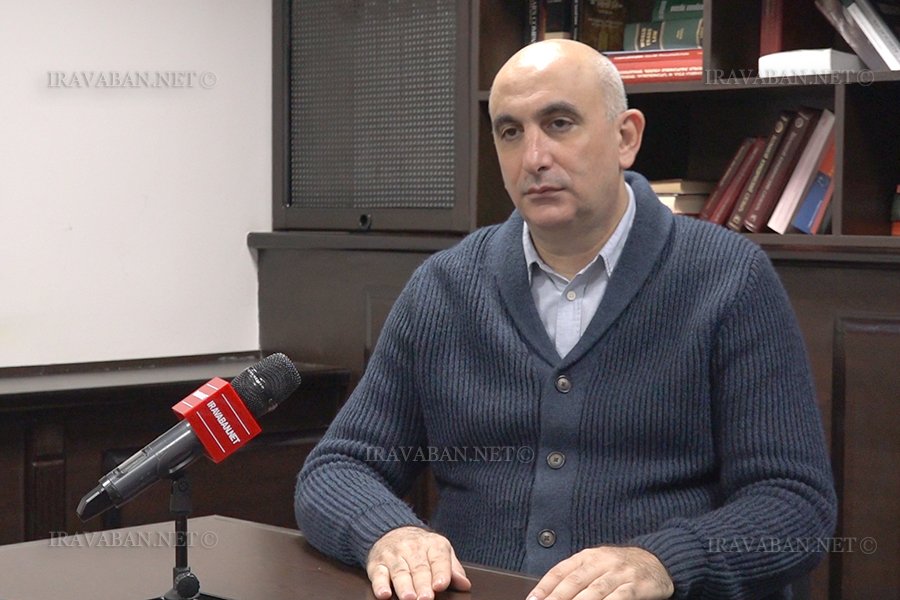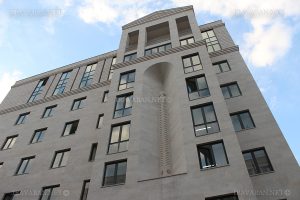The expert online workshop on the study “Integrity Checking and Responsibility of Judges under the extraordinary conditions (of transitional justice): International experience and mechanisms for implementation in Armenia” organized jointly by the CSO Anti-Corruption Coalition of Armenia, and Armenian Lawyers’ Association (ALA) was held on 8 November.
“The first proposal is related to the elimination of imposing disciplinary actions against judges by the Ministry of Justice of the Republic of Armenia. We believe that this practice should be eliminated in Armenia, because the executive body should not have the right to interfere in the activities of the judiciary. This was clearly stated by the Council of Europe Group of States against Corruption (GRECO) in Interim Compliance Report of Fourth Evaluation Round on Armenia, adopted on 22 September, 2021, which refers to the corruption prevention in respect of members of parliament, judges and prosecutors. In particular, in the conclusions section of that report, paragraph 78 records the following: “With regard to the judiciary, the role of the Minister of Justice in disciplinary procedures against judges has not been discontinued and the current situation is not compatible with judicial independence”.
This is clear and we also think that this authority of the Minister of Justice, who has been much discussed a lot lately, is not compatible with the independence of the judiciary, and should be abolished. Of course, in doing so, we must also be able to create effective mechanisms to enable an effective review of judges’ disciplinary proceedings with the participation of professional civil society organizations.
Second: We suggest that the composition of committees on ethics and disciplinary issues, evaluation of judges’ activities and education issues of the General Assembly of Judges of the Republic of Armenia should be reviewed.
On 25 March, 2020, the National Assembly adopted the drafts “On Making Changes and Amendments to the Constitutional Law “Judicial Code of the Republic of Armenia” and Making Changes and Amendments in Other Related Laws”, where clear mechanisms are created to provide a legal basis for the assessment of judges’ integrity in the following areas: checking and assessment the legality of property acquisition, professionalism and respect for human rights, impartiality (decision-making without affiliated entities or other influence). What happened? The main meaning of this reform was that representatives from the civil society joined those commissions, which did not exist before and were composed only of judges.
For example:
- The Ethics and Disciplinary Committee consists of 8 members, of which 6 are judges and 2 are non-judge members from the CSO field, and The General Assembly of Judges again elected the latter.
- The Committee for evaluation of judges’ activities and education issues consists of 5 members, of which 3 are judges and 2 are non-judge members from the CSO field.
- The Commission on Educational Issues consists of 7 members, of which 5 are judges and 2 are non-judge members from the CSO field.
“Since we had had a representative there and our general professional discussions showed that the involvement of two CSO members is not enough to have a real impact on the implementation of disciplinary proceedings,” Karen Zadoyan, said presenting details.
The following 4 of the 7 proposals for ongoing judicial reform presented as a result of the study are as follows:
3․ Ensuring access to advisory opinions on integrity checking of judges.
A separate procedure for conducting integrity checking of judges is established by Article 26.1 of the Law on Corruption Prevention Commission. The CPC has the right to conduct an integrity checking of officials. This study includes the verification of the data presented in a specially designed questionnaire on integrity, the analysis of information about the person in the media, as well as information published on social networks, verification of the grounds for belonging to the criminal subculture, valuation of property, etc.
Following these changes, the Corruption Prevention Commission has already carried out integrity checking of the candidates to the SJC, members of the RA Constitutional Court, and prosecutors of the Department for Confiscation of Property of Illicit Origin of the RA General Prosecutor’s Office, and the Deputy Prosecutor General who coordinates it. According to media reports, the CPC submitted a negative advisory opinion on one of the candidates (the candidate was then the President of the RA Court of Cassation). The negative opinion was presented to the deputies of the National Assembly, who were to elect the candidate as a member of the Constitutional Court. Despite this, the National Assembly did not take into account the results of the integrity checking by the Corruption Prevention Commission and elected the official as a member (judge) of the Constitutional Court. The advisory opinions of the CPC Integrity Checking tests are not subject to publication. The process of elaborating that conclusion is not public. Moreover, this conclusion also contributes to the decision of the SJC on the candidates for judges when the appointments are made. Thus, in the case of this strict secrecy regime, it is impossible to assess the effectiveness of this function, to carry out effective public control, to analyze how many of the conclusions provided (whether positive or negative) were taken into account in decision-making, to what extent they contain complete information about the candidate.
In the light of the above, it is proposed to make the consultative conclusions of the CPC on integrity checking open to the public, ensuring the confidentiality of personal data provided by law, taking into account publicly available personal data.
4. Renewal of incumbent judges through the appointment of new judge.
Over the years, judges in the judiciary have been recruited from people who have worked in the judiciary (for example, assistant judges, court clerks, experts). This practice has limited the opportunities for professional lawyers not related to the judiciary system, to become judges, and contributed to reducing competition between candidates for judges, and has influenced the process of having new quality judges.
In addition to the above, the workload of the courts has increased sharply in recent years. There are judges who have more than a thousand cases in their proceedings. This burden cannot but negatively affect the quality of a fair trial, including reasonable timeframes and quality judicial acts.
In the light of the above, we propose to supplement the judicial system with new judges, ensuring a balance between “professional experience among lawyers working/have worked and lawyers that have professional experience outside the judiciary.
5․ Providing possibility for Early Retirement․
In order to provide access to new judges in the judiciary, it is necessary to increase the number of vacancies for judges in different instance courts. In this regard, the number of judges retiring earlier should be considered as an indicator for the increase in the number of vacancies, for example early retirement of those judges whose tenure will end in five or less years.
In the light of the above, we propose to legislatively provide the possibility of retiring at an earlier age, providing the necessary legal and social guarantees.
6․ Establishment of additional requirements for judge’s incompatibility․
Taking into account that according to Part 6 of Article 164 of the Constitution of the Republic of Armenia the Law on the Constitutional Court and the Judicial Code may prescribe additional incompatibility requirements, we propose making amendments and additions to the Constitutional Laws of the Republic of Armenia on “Judicial Code” and the “Law on Constitutional Court of the RA” within the framework of legislative reforms and envisage new requirements for incompatibility with the status of a judge, which may relate to both property and personal ties or may arise as a result of the checking of those ties.


















